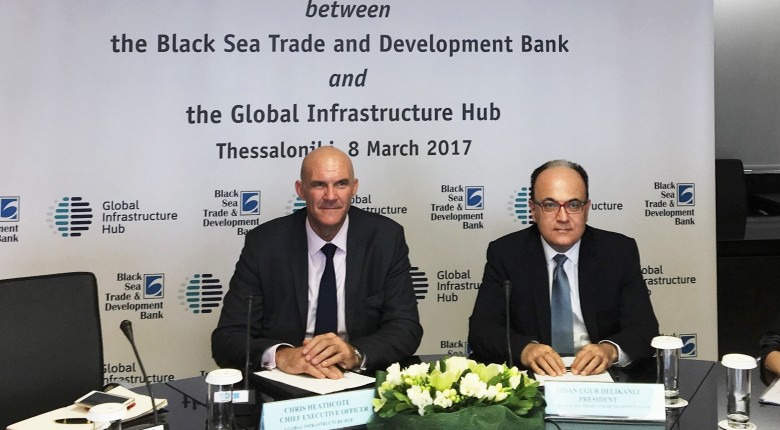828 results found
Featured results



More results

A G20 report prepared by the Global Infrastructure Hub reviewing the extent to which Multilateral Development Banks (MDBs) create incentives within their organisations to crowd-in private finance to fund public infrastructure.


Asian Infrastructure Investment Bank President Mr Jin Liqun met Global Infrastructure Hub Chief Executive Officer Chris Heathcote at the GI Hub’s Sydney office on April 3, where both parties provided briefings on their key work. Discussion focused on the GI Hub’s report undertaken for the G20 on the role of Multilateral Development Banks in “crowding-in” private finance for public infrastructure, which was released earlier this year. The GI Hub has already been in discussions with the AIIB on the recommendations in the report.
The Principles of MDBs’ Strategy for Crowding-in Private Sector Finance for Growth and sustainable Development promotes effective approaches to maximize the mobilisation and catalyzation of private sector resources.

This publication analyses the relationship between several infrastructure indicators and income inequality in urban areas of the People’s Republic of China.

This publication aims to estimate the direct and indirect effects of infrastructure on firm productivity using firm level data from the People’s Republic of China using multiple regression techniques.

Global infrastructure needs and Public-Private Partnerships were discussed when the Foreign Correspondents’ Association of Australia met the GI Hub today.
Global Infrastructure Hub Chief Executive Officer Chris Heathcote says quality public infrastructure can promote greater affluence and spark global growth. Mr Heathcote told a Public-Private Partnership Seminar in Athens that “infrastructure changes lives and changes economies”.
This book discusses in detail the issues and challenges associated with infrastructure connectivity in Asia.

This policy brief outlines promising ideas to attract instiutional investors to pay for infrastructure they have not convinced pension funds or affluent individuals to invest, especially in emerging economies with untested issuers, The “tax-kicker” bond being proposed here could solve this issue.

A Memorandum of Understanding (MoU) between the Global Infrastructure Hub (GI Hub) and the Black Sea Trade and Development Bank (BSTDB) has been signed at the BSTDB headquarters in Thessaloniki, Greece.
Mark Moseley, the GI Hub’s Senior Director for Legal Frameworks and Procurement Policies gave a presentation at a seminar on Future Ready: Sustainable Cities – Indonesia Infrastructure in Focus held in Jakarta, Indonesia on 7 March 2017.
Government officials from the Philippines visited the GI Hub today in Sydney to hear about the Hub’s work, and to discuss Public-Private Partnerships (PPPs) and the role they can play in delivering infrastructure.
Report reviewing the extent to which Multilateral Development Banks (MDBs) create incentives within their organisations to ‘crowd-in’ private finance to fund public infrastructure.
The GI Hub’s Project Pipeline is reaching out across the globe, with registered users from across 90 countries.
Asian Infrastructure Investment Bank Vice President and Chief Administration Officer Dr Luky Eko Wuryanto met with GI Hub Chief Executive Officer Chris Heathcote and senior staff in Sydney today.
Chris Heathcote, Chief Executive Officer, Global Infrastructure Hub The first few weeks of President Donald Trump’s administration have been dominated by early efforts to deliver on some of his most contentious election promises. While the world watches every pronouncement and, indeed, every tweet, there is hope that attention will soon turn to one of his pledges on which there was consensus, a massive and long-overdue infrastructure overhaul across the United States.

This document is the fifth edition of an informational tool and benchmarking index that assesses the capacity of countries in Latin America and the Caribbean to carry out sustainable public-private partnerships (PPPs) in infrastructure.


This paper exploits variations in the timing of telecommunications reforms across Europe to analyze the relationship between the rise of alternative work arrangements and the emergence of the Internet, which sectors are most impacted by the internet is also reviewed.

GI Hub’s Richard Timbs explains how the new, free Project Pipeline can help the private sector access data about government infrastructure projects across the globe.
This report provides an analytical framework to understand the fundamental institutions of good telecommunications regulation and analyzes the governance of telecommunications in Latin America and the Caribbean.











 Download Report
Download Report





